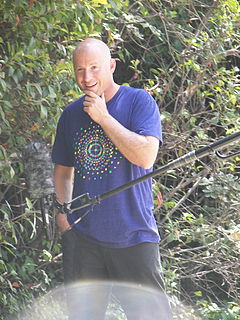A Quote by Antony Garrett Lisi
There are a lot of good things about string theory, and it's great that some people want to work on it.
Quote Topics
Related Quotes
The beauty of string theory is the metaphor kind of really comes very close to the reality. The strings of string theory are vibrating the particles, vibrating the forces of nature into existence, those vibrations are sort of like musical notes. So string theory, if it's correct, would be playing out the score of the universe.
I had two passions when I was a child. First was to learn about Einstein's theory and help to complete his dream of a unified theory of everything. That's my day job. I work in something called string theory. I'm one of the founders of the subject. We hope to complete Einstein's dream of a theory of everything.
In life, people tend to wait for good things to come to them. And by waiting, they miss out. Usually, what you wish for doesn't fall in your lap; it falls somewhere nearby, and you have to recognize it, stand up, and put in the time and work it takes to get to it. This isn't because the universe is cruel. It's because the universe is smart. It has its own cat-string theory and knows we don't appreciate things that fall into our laps.
Scientists are educated from a very early time and a very early age to believe that the greater scientist is the scientist who makes discoveries or theories that apply to the greatest ambit of things in the world. And if you've only made a very good theory about snails, or a very good theory about some planets but not about the universe as a whole, or about all the history of humankind, then you have in some sense accepted a lower position in the hierarchy of the fame of science as it's taught to you as a young student.





























